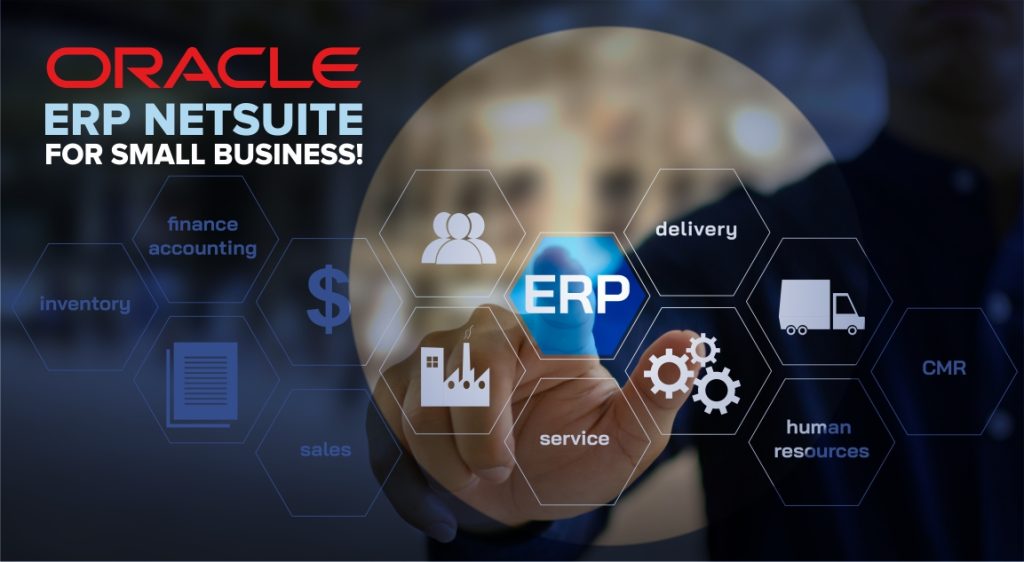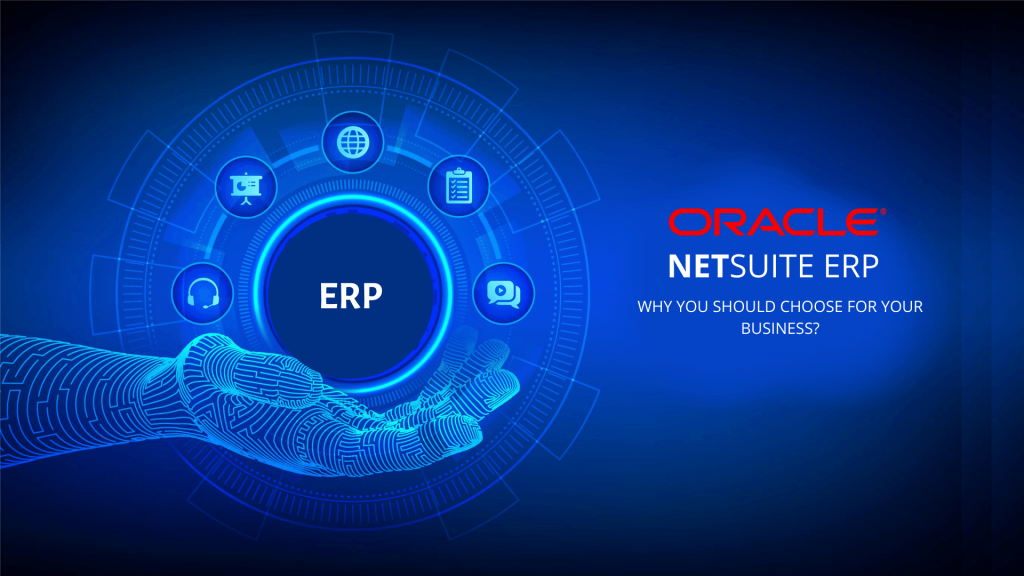In today’s fast-paced and competitive business landscape, organizations need robust systems to manage their operations efficiently. Enterprise Resource Planning (ERP) software plays a crucial role in integrating various business processes, such as finance, inventory management, human resources, and customer relationship management.
NetSuite ERP is a leading cloud-based ERP solution that provides a comprehensive suite of tools and features to streamline and optimize business operations. In this article, we will delve into the details of NetSuite ERP, exploring its key functionalities, benefits, and implementation considerations.
Understanding NetSuite ERP

1. Definition and Overview
NetSuite ERP, developed by Oracle Corporation, is a cloud-based business management solution designed to streamline and automate key organizational processes. It offers a wide range of integrated modules, including financial management, inventory management, order management, procurement, human resources, and customer relationship management. NetSuite ERP provides a centralized platform that enables businesses to manage their operations effectively, improve productivity, and make data-driven decisions.
2. Key Features and Functionality
NetSuite ERP offers a comprehensive set of features to support diverse business processes:
a. Financial Management
NetSuite ERP provides robust financial management capabilities, including general ledger, accounts payable and receivable, budgeting, and financial reporting. It enables businesses to manage financial transactions, automate billing processes, track expenses, and generate accurate financial statements. With real-time visibility into financial data, organizations can gain insights into their financial health and make informed strategic decisions.
b. Inventory Management
Effective inventory management is critical for businesses to optimize supply chain operations and meet customer demands. NetSuite ERP offers advanced inventory management features, such as demand planning, inventory tracking, stock replenishment, and warehouse management. It helps organizations maintain optimal inventory levels, reduce carrying costs, and improve order fulfillment efficiency.
c. Order Management
NetSuite ERP streamlines the entire order management process, from order creation to fulfillment. It includes features like order processing, pricing and discount management, order tracking, and returns management. Businesses can automate workflows, enhance customer satisfaction, and improve order accuracy and timeliness.
d. Procurement
NetSuite ERP simplifies the procurement process by providing tools for vendor management, purchase order creation, supplier collaboration, and procurement analytics. It helps businesses streamline purchasing activities, negotiate better deals with suppliers, and ensure timely delivery of goods and services.
e. Human Resources Management
NetSuite ERP offers human resources management capabilities, including employee data management, payroll processing, benefits administration, and performance management. It enables businesses to efficiently manage their workforce, track employee information, and automate HR processes, thereby improving employee productivity and engagement.
f. Customer Relationship Management (CRM)
NetSuite ERP integrates seamlessly with NetSuite’s CRM module, providing a unified platform for managing customer relationships. It allows businesses to track leads, manage sales opportunities, automate marketing campaigns, and provide exceptional customer service. By consolidating customer data and interactions, organizations can enhance customer satisfaction and drive revenue growth.
3. Benefits of NetSuite ERP

Implementing NetSuite ERP offers several benefits for organizations:
a. Scalability and Flexibility
NetSuite ERP is a cloud-based solution, providing scalability to accommodate the evolving needs of businesses. Whether a company is a small startup or a large enterprise, NetSuite ERP can scale accordingly. It offers flexible pricing models, allowing organizations to pay for the features and resources they require, making it a viable option for businesses of all sizes.
b. Real-Time Data and Analytics
NetSuite ERP provides real-time visibility into critical business data, enabling organizations to make informed decisions. With integrated reporting and analytics capabilities, businesses can generate customizable reports, track key performance indicators (KPIs), and gain actionable insights into
their operations. This empowers organizations to identify trends, spot opportunities, and proactively address challenges.
c. Streamlined Operations and Increased Efficiency
NetSuite ERP helps streamline business operations by automating manual processes and eliminating redundant tasks. With integrated modules and centralized data, organizations can reduce data entry errors, improve collaboration across departments, and optimize workflow efficiencies. This leads to increased productivity and cost savings.
d. Improved Customer Experience
NetSuite ERP’s integration with the CRM module allows organizations to provide a seamless and personalized customer experience. Businesses can track customer interactions, manage sales pipelines, and deliver targeted marketing campaigns. This enables organizations to build stronger customer relationships, enhance customer satisfaction, and drive customer loyalty.
e. Enhanced Compliance and Security
NetSuite ERP is designed to meet industry-specific compliance regulations and security standards. It provides robust data security measures, including role-based access controls, data encryption, and regular system backups. This ensures the confidentiality, integrity, and availability of critical business information.
4. Implementation Considerations
Implementing NetSuite ERP requires careful planning and consideration. Here are a few key factors to keep in mind:
a. Requirements Assessment
Before implementing NetSuite ERP, organizations should conduct a thorough assessment of their business requirements. This involves identifying key pain points, defining objectives, and understanding specific needs across departments. By aligning the ERP implementation with business goals, organizations can ensure a successful and tailored deployment.
b. Customization and Configuration
NetSuite ERP offers extensive customization capabilities to align with unique business processes. During implementation, organizations should consider customizing the system to meet their specific requirements. This may involve configuring workflows, creating custom fields, and defining user roles and permissions. However, it is important to strike a balance between customization and adhering to best practices to avoid unnecessary complexity and future maintenance challenges.
c. Data Migration and Integration
Migrating existing data to NetSuite ERP is a critical aspect of implementation. Organizations need to plan and execute a smooth data migration process, ensuring data accuracy and integrity. Additionally, integrating NetSuite ERP with existing systems, such as CRM, e-commerce platforms, or third-party applications, may be necessary to streamline business processes and achieve a unified data ecosystem.
d. Training and Change Management
User adoption is crucial for the success of any ERP implementation. Organizations should invest in comprehensive training programs to familiarize employees with the new system. Change management strategies, including communication, stakeholder engagement, and addressing employee concerns, should be implemented to ensure a smooth transition and minimize resistance to change.
e. Ongoing Support and Maintenance
After implementation, organizations should establish a support and maintenance plan to address ongoing system updates, user support, and issue resolution. This may involve engaging with a NetSuite partner or leveraging internal IT resources to ensure the ERP system remains optimized and aligned with evolving business needs.
Conclusion
NetSuite ERP is a powerful cloud-based solution that enables organizations to streamline their operations, improve efficiency, and gain actionable insights. With its comprehensive suite of features, including financial management, inventory management, order management, procurement, HR, and CRM, NetSuite ERP offers a centralized platform for businesses to manage their end-to-end processes.
By implementing NetSuite ERP, organizations can achieve scalability, real-time visibility, streamlined operations, enhanced customer experience, and improved compliance. However, successful implementation requires careful planning, customization, data migration, user training, and ongoing support. With proper implementation and utilization, NetSuite ERP can be a game-changer for organizations seeking to drive growth, optimize processes, and stay ahead in today’s competitive business landscape.





